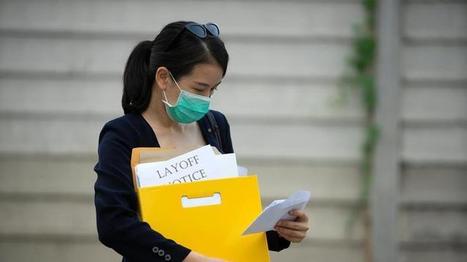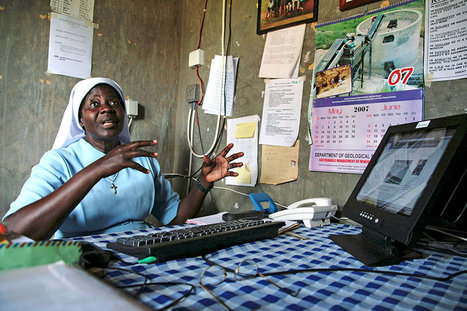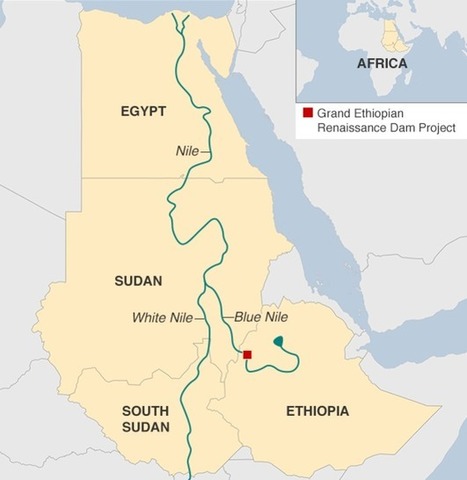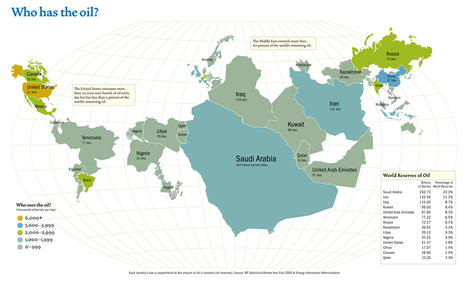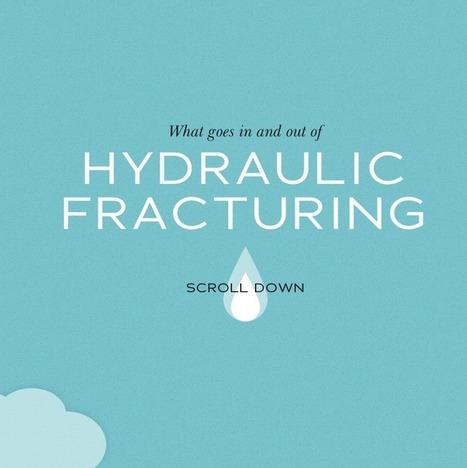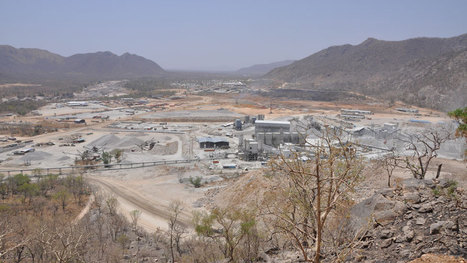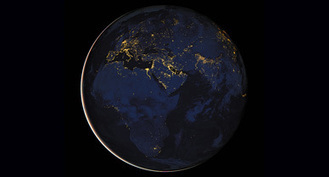The world might be on the verge of another revolution like that of the replacement of the horse with the rise of electric cars and self-driving
Get Started for FREE
Sign up with Facebook Sign up with X
I don't have a Facebook or a X account
 Your new post is loading... Your new post is loading...
 Your new post is loading... Your new post is loading...
Katie Kershaw's curator insight,
February 15, 2018 2:50 PM
While the process of making ethanol takes a long time and is expensive, I think it is worth investing in and pursuing as an alternative to fossil fuels. Like most products, once the process of making the ethanol is perfected and made more efficient, it will be cheaper and easier to make. Brazil has not invested as much time in the product after they found reserves of oil, because the oil was more profitable. The demand in the world in extremely high and therefore it was more economically wise for Brazil to put focus on fossil fuel extraction. However, they already have created technology that is able to run on ethanol and they’ve realized that the product is more environmentally friendly. This means that the potential to stop relying on fossil fuels is realistic. Since sugar is a renewable resource, it makes more long term economic sense to invest into sugarcane and ethanol production because fossil fuels will eventually run out.

Kevin Cournoyer's curator insight,
May 6, 2015 7:22 PM
This article discusses the dispute between Egypt and Ethiopia over the construction of a dam that would provide Ethiopia with a larger share of the Nile's water. Egypt is wholly opposed to this dam because it would mean less water for the country, which so desperately needs it. With 95% of the population of Egypt living within 20km of the Nile River, a reduction in the amount of water supplied to these tens of millions could potentially spell slow disaster. At the same time, however, Ethiopia desperately needs water from the Nile in order to provide sustainable energy for its citizens.
The Nile has been a source of life and energy for thousands of years in an oppressively hot, dry place. The ancient Egyptians counted on the Nile to flood every year so that they would have arable land and used the large river to irrigate their farmland. It is almost ironic, therefore, that Egyptians are once again counting on the water of the Nile to help them survive in such a harsh climate. It seems that the Nile is one of those natural geographic features that is pivotal to political, economic, and social wellbeing. It represents the nexus between natural landforms and the political and economic goals of human beings and nations. Dispute over use of the Nile as a natural and life-giving resource is not the first instance of human debate over possession or use of natural geography and it likely won't be the last.
Adrian Bahan (MNPS)'s curator insight,
March 31, 2016 11:57 AM
85% of the Nile's water comes from the Blue Nile that originates in the Ethiopian highlands--it is the Blue Nile that Ethiopia has been working on damming since 2011. The Grand Ethiopia Renaissance Dam (GERD) will be located near the border with Sudan (see in Google Maps). Prior to this trilateral agreement, Egypt and Sudan received the majority of the Nile's waters because of outdated colonial-era treaties that ignored upstream riparian states. This explains why in the past, Egypt was so adamantly opposed to Ethiopia's plan fearing that their water supply with be threatened. Today though, the Egyptian President said, "We have chosen cooperation, and to trust one another for the sake of development." Tags: Ethiopia, Africa, supranationalism, political, development, environment, water, energy, borders.
brielle blais's curator insight,
May 1, 2018 10:45 PM
This article shows how important it is for countries to have good relationships with one another. This is an example of political geography. Diverting the Nile would help Ethiopia immensely, producing electricity and providing a water source. Egypt and Sudan were able to create a compromise and agree to share, and a long dispute is now over.
Adam Deneault's curator insight,
December 14, 2015 5:40 PM
This use of oil world wide is highly uneven. Maybe there are a lot of wars because of this. We are consuming twenty million barrels of oil a year, that is a lot. The middle east hosts over sixty percent of what oil is left remaining and with countries setting the prices of oil, of course some countries will definitely have more or less. those countries with money will have the oil, those without will not. Developed countries will be able to afford and undeveloped countries will not get what they want or need.
Adrian Bahan (MNPS)'s curator insight,
March 31, 2016 11:58 AM
Natural resources are not evenly distributed...this distribution pattern impacts global economics, industrialization, development and politics tremendously. Tags: industry, economic, energy, resources.
BrianCaldwell7's curator insight,
April 5, 2016 8:17 AM
Natural resources are not evenly distributed...this distribution pattern impacts global economics, industrialization, development and politics tremendously. Tags: industry, economic, energy, resources.

Denise Pacheco's curator insight,
December 17, 2013 3:37 PM
Hydrographic Turing puts people in safety and health risks. Because the water is contaminated and because of the oil spills, blow outs, and fires. They put chemicals into the ground in order to make cracks in the earth to collect natural oil, but they use people's land in order to collect the oil. People are complaining about these industries because they now have to buy water every month instead of getting it from their sinks or wells. Not to mention some houses have already blew up or caught on favor thanks to hydro fracturing. They need to put a stop to this, at least do it on land that is not being used and far away from people.
Jacqueline Landry's curator insight,
December 17, 2013 6:07 PM
The development of gas is important for energy but there are health and safety risks with cracking in neighborhoods. Quality of air and water is important for survival. Nature matters and people matter, they need to find a middle ground. |

Albert Jordan's curator insight,
April 1, 2014 3:06 PM
In an area fraught with political instability, non state actors, and rebel groups all too willing to fight for power and the wealth that comes from it - it will be interesting to see how the conflicts shift over time as this dam gets closer to completion. Will Egypt attempt to sabotage it or will they take a more diplomatic approach and try to work with the Ethiopian government diplomatically again? Perhaps Egypt will whisper in to the ear of Sudan or the various "rebel" groups in the region, considering diplomatic means have apparently failed so far. With Sudan's use of the Blue River also going to be affected by Ethiopia's damming, it will be interesting to see if a cooperation between Egypt and Sudan occurs. Perhaps Ethiopia would like to see a deeper conflict between Sudan and South Sudan, keeping their affected neighbor off balance.
Tracy Galvin's curator insight,
April 16, 2014 6:47 PM
It is extremely difficult to divide a river. The Ethiopians will benefit immensely from this project but the Egyptians could lose everything if the Nile dries up. This is going to be a difficult problem to solve. 
Jess Deady's curator insight,
May 4, 2014 3:45 PM
There is no way the whole Nile river is going to be dried up because of this damn. Ethiopia won't let that happen. To say that the river is going to have the same amount of water in it, thats not going to happen. Obviously the Gerd is going to have a huge impact on the water supply of the Nile but it definitely isn't going to dry up the whole thing!

Paige Therien's curator insight,
May 4, 2014 11:28 AM
Besides the very intense cultural and political split that exists in Ukraine and the conflict as a whole, one of the key factors in this situation is gas. This infographic shows that both Ukraine and the EU gets their gas from Russia, and Ukraine is the area which the gas lines flow through. As soon as many people in Ukraine showed interest in joining the EU, Russia reminded Ukrainians and the world of this fact
Tanya Townsend's curator insight,
November 20, 2015 2:51 PM
The tug-of-war over Ukraine's gas lines not only creates political and cultural divides but also a lot of tension. Ukraine has power in its gas lines because it has a resource that is valuable and others need.
tyrone perry's curator insight,
April 9, 2018 7:18 PM
The fight for Ukrainian land stems from Russian gas lines going thru Ukraine. But Ukraine wants to be part of the EU to become stronger financially. Russia already slashes gas prices to Ukraine so it seems they just want complete control for more profit and more geographic location.
|



